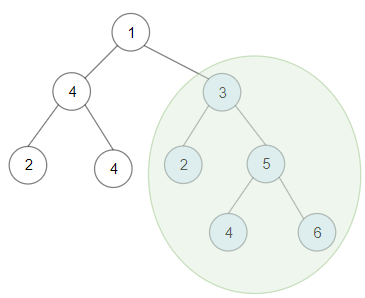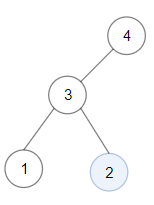Given a binary tree root, return the maximum sum of all keys of any sub-tree which is also a Binary Search Tree (BST).
Assume a BST is defined as follows:
- The left subtree of a node contains only nodes with keys less than the node's key.
- The right subtree of a node contains only nodes with keys greater than the node's key.
- Both the left and right subtrees must also be binary search trees.
Input: root = [1,4,3,2,4,2,5,null,null,null,null,null,null,4,6] Output: 20 Explanation: Maximum sum in a valid Binary search tree is obtained in root node with key equal to 3.
Input: root = [4,3,null,1,2] Output: 2 Explanation: Maximum sum in a valid Binary search tree is obtained in a single root node with key equal to 2.
Input: root = [-4,-2,-5] Output: 0 Explanation: All values are negatives. Return an empty BST.
- The number of nodes in the tree is in the range
[1, 4 * 104]. -4 * 104 <= Node.val <= 4 * 104
# Definition for a binary tree node.
# class TreeNode:
# def __init__(self, val=0, left=None, right=None):
# self.val = val
# self.left = left
# self.right = right
class Solution:
def maxSumBST(self, root: Optional[TreeNode]) -> int:
def dfs(root: Optional[TreeNode]) -> (bool, int, int, int, int):
if root is None:
return (True, 40001, -40001, 0, 0)
isbstl, minl, maxl, suml, retl = dfs(root.left)
isbstr, minr, maxr, sumr, retr = dfs(root.right)
isbstt = isbstl and isbstr and root.val > maxl and root.val < minr
if isbstt:
sumt = suml + sumr + root.val
return (True, min(minl, root.val), max(maxr, root.val), sumt, max(sumt, retl, retr))
else:
return (False, 0, 0, 0, max(retl, retr))
return dfs(root)[4]
